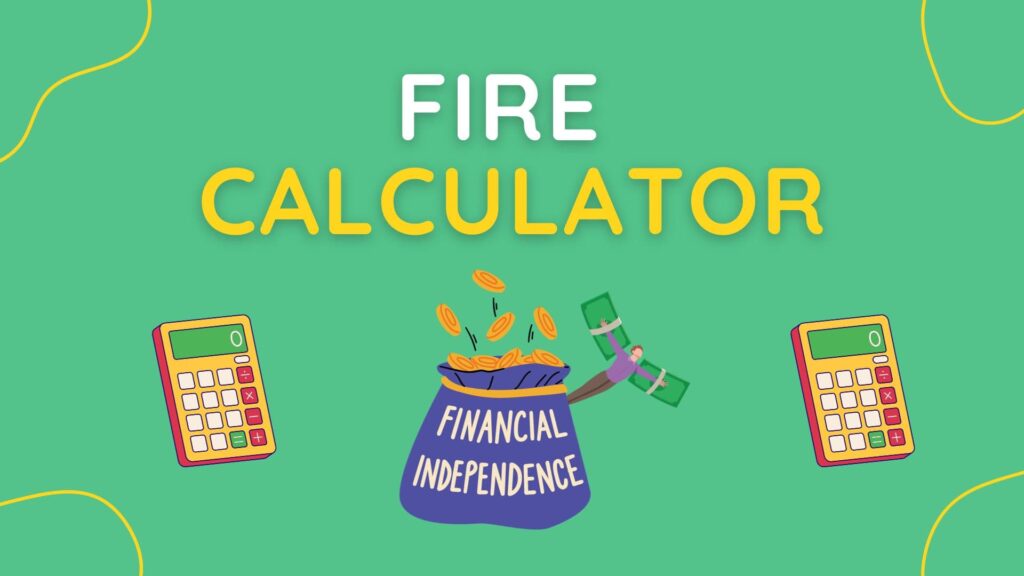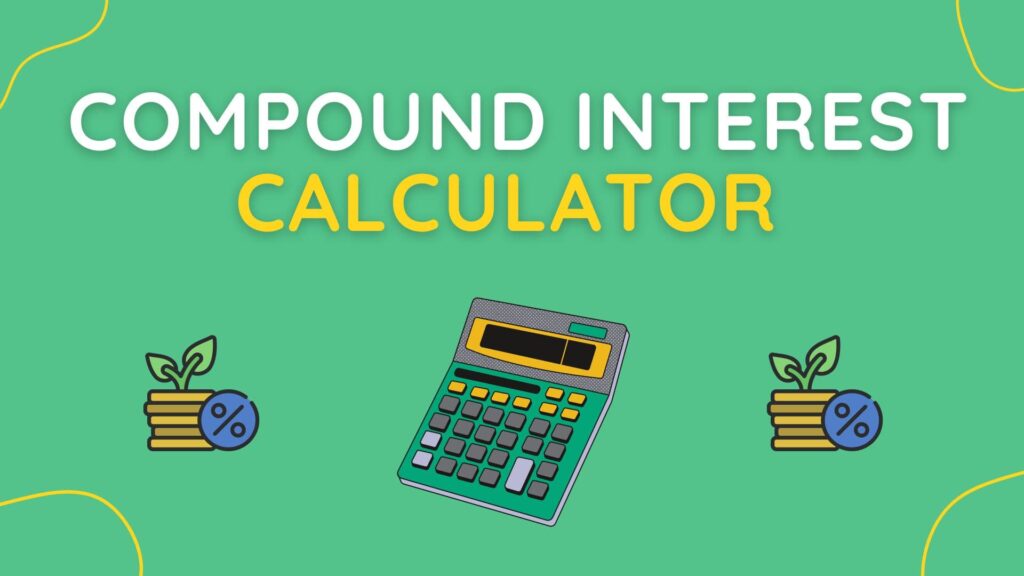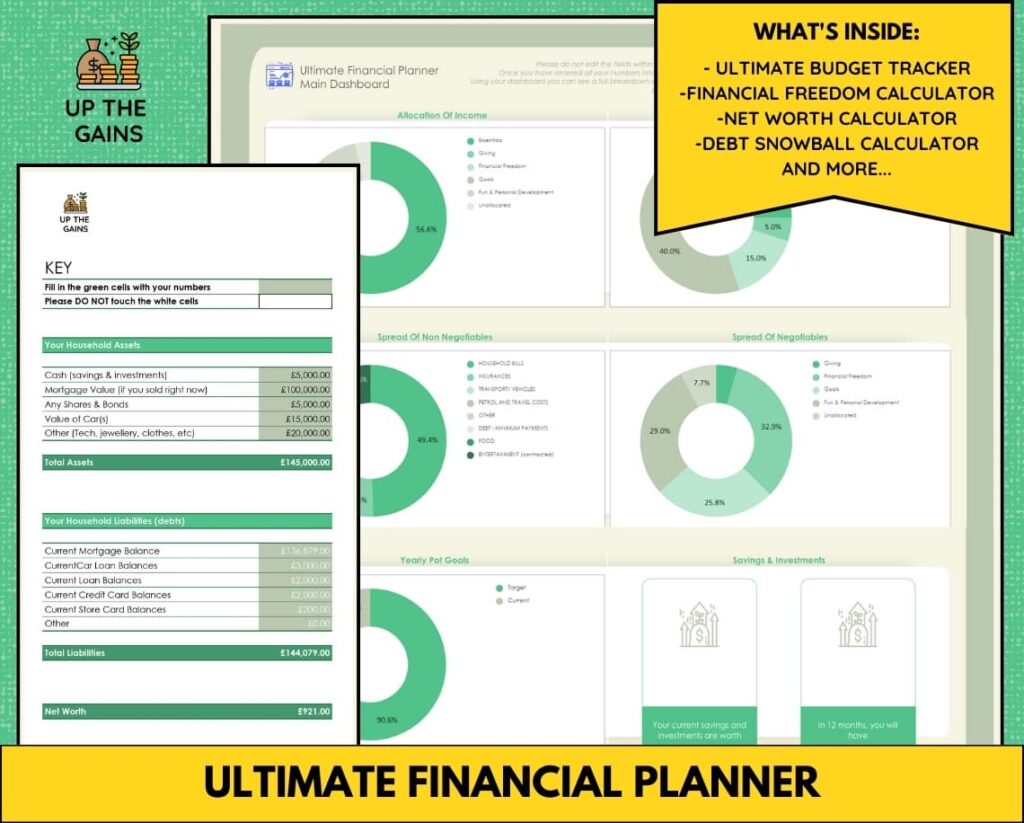Simple Monthly Budgeting Calculator

When it comes to budgeting, it’s important to know what your outgoings are.
Use this monthly budget calculator to work out your expenses.
What are budgets useful for?
- Saving
- Investing
- Setting financial goals
- Understanding your financial situation
- Prepares you for emergencies
- Helps plan for retirement
- It sheds light on those bad habits
Once you establish a base budget, you can look for ways to save money and hopefully invest too.
Creating a habit like this is beneficial in many ways and can help you improve your relationship with money.
Finding those little nuggets you can save on could be the difference between a family holiday, a first house deposit or even financial freedom if you’re thinking big.
We have a whole section dedicated to saving money here.
What is a budget?
A budget is a financial plan that outlines an individual’s or organisation’s projected income and expenses over a specified period, typically monthly or annually.
It serves as a roadmap for managing money, ensuring that expenditure does not exceed income, and that funds are allocated towards savings and debt repayment effectively.
A budget tracks the flow of money in and out of your pocket, providing clarity and control over personal finances.
Need help budgeting? Check out the best UK budgeting apps.
Why Is budgeting important?
Budgeting stands at the core of personal financial health. It empowers individuals to make informed decisions about their spending, saving, and investing.
With a solid budget, one can prioritise their financial goals, avoid overspending, and build an emergency fund.
It’s essential for anyone looking to maintain a healthy financial status, as it can lead to a better credit score, greater financial security, and peace of mind.
Whether you’re managing daily expenses or planning for retirement, budgeting can pave the way for financial success and stability.
Equally you could just be looking to save for a holiday or new car.
If you’re single then you only have yourself to worry about but if you have a family then building a household budget can be more challenging.
How to use our UK budget calculator?
A UK budgeting calculator is a user-friendly tool designed to simplify the budgeting process. It helps you categorise your income and expenses, and calculates how much money you have left over for savings or additional spending. Here’s how to use one effectively:
Gather Financial Information: Collect all your financial statements, including income details, bills, and receipts.
Input Your Information: Start by entering your income into the personal finance budget calculator. Follow this with your regular expenses, such as mortgage or rent, utilities, and groceries.
Customise Your Categories: If you’re using a home budgeting calculator, ensure that you customise the categories to reflect expenses typical to home maintenance and needs.
Adjust for Accuracy: Use a basic budget calculator for a straightforward overview, and then adjust the figures to account for fluctuating costs or seasonal expenses.
Analyse the Results: Once the calculator has processed your input, review the summary to understand where your money goes and identify areas where you can cut back.
Plan and Adjust: Utilise the free budgeting calculator to experiment with different spending scenarios and adjust your budget to meet your financial goals.
By routinely checking and updating your budget with a budgeting calculator, you can stay on top of your finances and make changes as your financial situation evolves.
Are you a student? Check out the best budgeting apps for students right now.
Why is the 50/30/20 rule always spoken about?
The 50/30/20 rule is a popular and straightforward budgeting framework that advocates dividing post-tax income into three spending categories…
50% for needs, 30% for wants, and 20% for savings or paying off debt.
This rule is widely spoken about because of its simplicity and adaptability. It provides a balanced approach to managing money that can be easily tailored to different income levels and lifestyles.
By following this method, individuals can cover essential expenses, indulge in personal desires responsibly, and build a financial cushion without meticulous tracking of every pound spent.
What are some other budgeting techniques I can use?
Aside from the 50/30/20 rule, there are other budgeting techniques that might align better with different financial goals and preferences:
-
Pay Yourself First: This technique flips the budgeting process by prioritising savings and investments. Before paying bills or discretionary expenses, you set aside a predetermined amount towards your savings goals. This ensures that you consistently build your financial reserves and investment portfolio.
-
Zero-Based Budget: A zero-based budget requires you to allocate every pound of your income to specific expenses, savings, and debt repayment, ensuring there is no unassigned money left at the end of the month. This method can be particularly effective for those who want a meticulous and purposeful plan for their finances.
These alternative methods to the 50/30/20 rule offer different perspectives on managing money and can be used independently or combined to create a custom approach that suits your personal finance journey.
Whether you’re an advocate for the ‘pay yourself first’ mentality or you thrive with the precision of a zero-based budget, the key is to choose a technique that fits your lifestyle and helps you achieve your financial objectives.
What are some budgeting tips and tricks?
Here are 5 budgeting tips that I use every month to help me keep track of my finances.
Automate Your Savings: Set up automatic transfers to your savings account to ensure you save regularly without needing to think about it.
Track Your Spending: Keep an eye on your expenditures with a budgeting app or spreadsheet; awareness can help curb unnecessary purchases.
Review Subscriptions: Regularly assess your recurring subscriptions and cancel any that you no longer need to avoid wasteful spending.
Set Specific Goals: Having clear financial goals can provide motivation and structure to your budgeting efforts, making it easier to stick to your plan.
Meal Planning: By planning your meals, you can minimise food waste and reduce the temptation to eat out, keeping your grocery budget in check.
Implementing these five tips can significantly improve your ability to manage your finances effectively. If you’re still struggling check out our money saving tips and tricks guide.
Use Our Other Money Calculators





